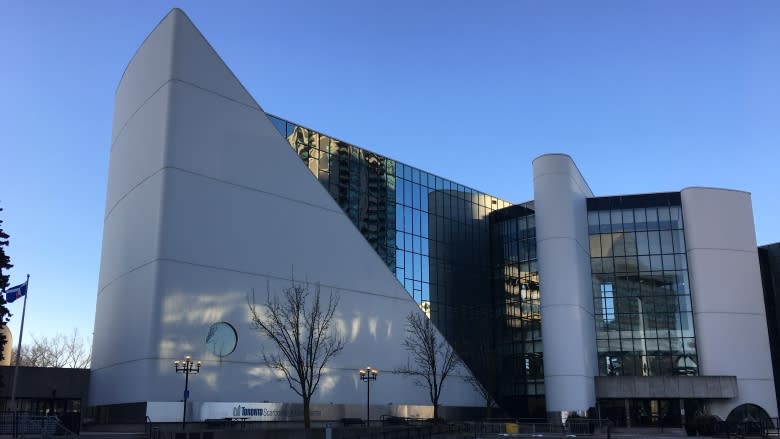Next Toronto council will set city's financial direction
Mayor John Tory's executive committee shot down demands for a full debate on a report outlining the city's financial challenges, opting instead to allow the next council to make those tough decisions.
Tory suggests the long-term and long-delayed financial plan, penned by outgoing City Manager Peter Wallace and senior staff, is "incomplete" in the sense that it offers a number of options when it comes to generating revenue and slashing costs, but those options haven't been studied in depth.
However, a number of councillors who aren't on Tory's executive came to the meeting to demand the report go to the full council next week. Coun. Janet Davis wrote a motion requesting that, but nobody on the executive agreed to move it for her.
Davis voiced her frustration with that, noting council often approves major initiatives — from climate change to child care — then has a secondary debate during the budget process about whether or not to actually fund those decisions.
"We need ongoing strategies that build this city," she said.
Coun. Gord Perks says he wanted to see councillors vote on questions like whether or not they would support new taxes to pay for more city services.
"To refuse to do that is to refuse to give voters a clear choice," he said, adding right now it's hard to know where councillors stand.
However, Perks did suggest this council can be judged on its refusal to make longer-term financial plans.
"In this term of office we have dithered," he said.
Coun. Denzil Minnan-Wong, who is running in the upcoming provincial election, responded to Perks's idea by suggesting any councillor who wants to campaign on increasing taxes should put that on their lawn signs.
He says just one of the last 200 people he's spoken with on the campaign trail supported a tax hike.
Other committee members shared that view. Coun. Frank Di Giorgio noted a number of costs, from hydro to water bills, have been escalating and people are feeling the pressure.
He suggested the city's plans to expand services may need to be "dampened" a little bit.
"The priorities have to be set by the people paying the bills," he said.
Coun. Mary-Margaret McMahon, meanwhile, suggested this debate shouldn't take place while the city's in "election mode," suggesting Toronto's new, larger council will be in a better position to take it on.
In an unusual move, Monday's meeting was held at the Scarborough Civic Centre.
Scarborough speaker want this debated
Several members of the public also urged the executive to allow a second debate.
Ginelle Skerritt of Social Planning Toronto says that while debating new taxes may be an "inconvenient narrative" during the election campaign, it's a necessary conversation to have.
"The time is now," she said.
Sarah Climenhaga, a community advocate who says she plans to run against Tory in the upcoming election, argues the debate should absolutely be held at council.
"It's certainly critical that it's done because it affects every single thing we do in the city," Climenhaga said.
Wallace lays out 3 options
Toronto is growing rapidly and climbing the list of the world's top cities to live in, Wallace told the committee. However, that success is driving several challenges for policymakers.
Wallace says the city is feeling the pressures of growth in areas like transit and housing, and noted the are "very real" environmental challenges associated with growth as well. He also notes the changes often have the biggest effect on the city's most vulnerable.
He says the city has been successful at keeping the cost of government down, but there are increasingly fewer opportunities to slash costs.
With that context established, he suggested council has to choose from the following three options in the future:
- A smaller government, offering fewer services. This option would reduce costs.
- Maintaining the existing service level. This option will require a moderate revenue increase.
- Adopting a broader, city-building agenda. This option will force city hall to generate some $1.4 billion in the coming years through taxes and fees.
Wallace says he's comfortable with debating the report at council, however noted that it's not necessary for city staff to continue researching various aspects of the plan.




